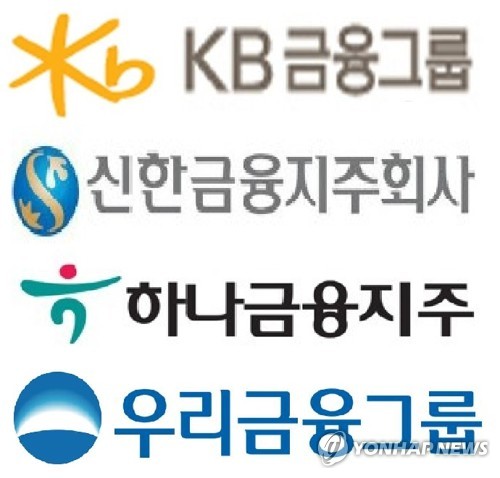
(Seoul=Yonhap Infomax) Sang Min Han – Asset management subsidiaries of major South Korean financial holding companies—KB Financial Group, Shinhan Financial Group, and Hana Financial Group—are facing mounting operational losses in their real estate fund portfolios.
Excluding Woori Asset Management, which was launched last year through a merger with a specialized alternative investment manager, most real estate funds operated by these groups have now entered a phase of underperformance, lagging behind market benchmarks.
According to Yonhap Infomax data on fund establishment trends (screen number 5312) as of the 24th, the combined assets under management (AUM) for all domestic asset managers’ real estate funds and discretionary investment mandates stood at approximately 189.457 trillion won ($146.2 billion).
On a net asset value (NAV) basis, total real estate fund AUM reached about 197.499 trillion won ($152.4 billion) during the same period, representing a 4.2% premium over the established amount.
However, asset management arms of major financial holding companies are reporting real estate fund returns that fall short of market averages.
At KB Asset Management, the principal amount for private and public real estate funds and discretionary mandates was 9.1832 trillion won ($7.09 billion) as of the 24th. In contrast, the AUM for real estate funds was 8.7959 trillion won ($6.79 billion), about 4.2% lower than the principal. The scale of operational losses widened by -0.2% compared to the same period last year, when the principal stood at 7.8725 trillion won ($6.08 billion).
Shinhan Asset Management has also entered a negative evaluation phase, with real estate fund losses reaching approximately -6%. Its AUM was 7.2462 trillion won ($5.59 billion), and operational losses in both public and private real estate funds and discretionary mandates have deepened compared to last year’s -2.6%.
Hana Alternative Asset Management’s real estate fund and discretionary AUM (5.9840 trillion won, $4.62 billion) is about 10% below the principal, with the loss margin expanding from -3.6% a year earlier.
Among the four major financial holding company asset managers (KB, Shinhan, Woori, Hana), only Woori Asset Management—formed through the merger with Woori Global Asset Management early last year—remains in positive territory for real estate fund operations. As of the 24th, its combined principal for real estate funds and discretionary mandates was about 2.1642 trillion won ($1.67 billion), with AUM at 2.2335 trillion won ($1.72 billion), up 3.2%. However, this still trails the market benchmark of 4.2%.
Most overseas public real estate funds established in South Korea have now entered negative evaluation territory. Furthermore, operational losses in private real estate funds could not only result in investor losses but also reduce future net profits for affiliated companies, as performance and disposal fees from real estate funds may decline.
An industry official commented, “Public real estate funds, which are heavily weighted toward overseas commercial real estate (CRE), have suffered significant losses and remain in negative evaluation territory without recovery. However, private real estate funds show considerable variation depending on the specific fund and region.”
smhan@yna.co.kr
(End)
Copyright © Yonhap Infomax Unauthorized reproduction and redistribution prohibited.

